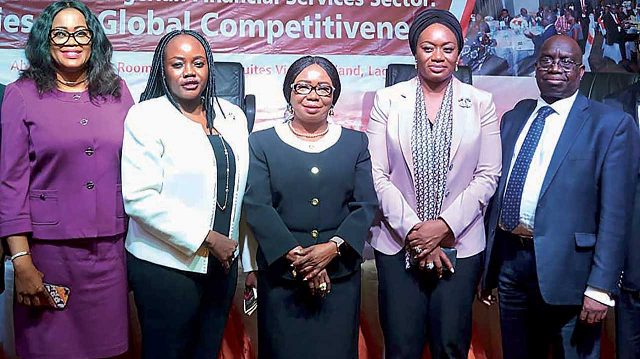From the Central Bank of Nigeria (CBN) and the Financial Institutions Training Centre(FITC), to the experts in the nation’s financial services sector, Financial Technology (Fintech) is not just the way to, but full of potentials to efficiently drive the economy.
At the Thought Leadership Series 2.0, organised by FITC, on the implications of the disruption of the banking industry by Fintech, in Lagos, at the weekend, technology has the solution to the long search for financial inclusion.
Themed: “Emerging Financial Technology and the Nigerian Financial Services Sector: Exploring Opportunities for Global Competitiveness” both regulators and operators spoke on opportunities and threats presented by the emergence of FinTechs and the preliminary findings of the survey.
CBN Deputy Governor, Financial System Stability and Chairman of FITC, Mrs. Aishah Ahmad, said FinTechs present a huge opportunity for the financial sector, especially in getting more unbanked to embrace financial services.She said FinTech would help in cross-boarder payment and help bring in more funds from the Diaspora into the economy.
Ahmad said a large part of the Diaspora remittances are still in the informal sector, adding that there is a need to bring them into the formal sector through FinTechs.
The event was also an opportunity for the participants to review preliminary findings of a FinTech Awareness and Skill survey deployed by FITC, FinTech Association and FinTech Circle, UK and proffer regulations and operational solutions for the emerging landscape of the financial services sector.
FITC Managing Director/Chief Executive Officer, Dr. Lucy Surhyel Newman, said the financial services sector had experienced disruption because of the innovation related to technology.She said that FITC and its partners, chose to start from the basis of the research, by getting data on the industry and then get stakeholders to discuss key industry issues.
“It is time to collaborate, partner and leverage on the experiences of various industries within the Nigerian Financial System, for global competitiveness.“You can see from the panelist’s discussion, first of all, how they responded to the survey, and what their respective institutions are doing, and what they think regulators should do to help the system.
“We have financial institutions that are going out of Nigeria and into other countries, and in a short time, setting the service standards in those countries.
“So, how do we retain our leadership roles, and at the same time, protecting institutions against the downside of FinTech, as well as educating the public to embrace it, so that we can reach more people in the financial inclusion space.
“For us at FITC, from the fact that Fintech has entered the financial services sector, we think it is better to embrace it. We are happy to bring such conversations, and hopefully, apt policies can emanate from today’s discussion”.She said her biggest legacy was being able to take FITC beyond the aspired Financial System Strategy (FSS) 2020 environment, for FITC institutional members and stakeholders.
“FITC is now the wholesome and reflects the entire Financial Services Sector. When we updated the composition of the board, we added one seat for regulators in other industries in the financial services on a rotational basis,” she added.
The Acting Director-General, Securities and Exchange Commission (SEC), Uduk Mary Joseph, said the FinTech market needed to be ahead of regulation.She said regulators will always watch to see loopholes in the industry operation and intervene through laws and guidelines for the sector.
The Executive Director, Information Technology at Access Bank Plc, Ade Bajomo, at a panel discussion, said the financial sector should welcome and adopt digital technology, adding that FinTech is the way to go.
Source: Guardian











